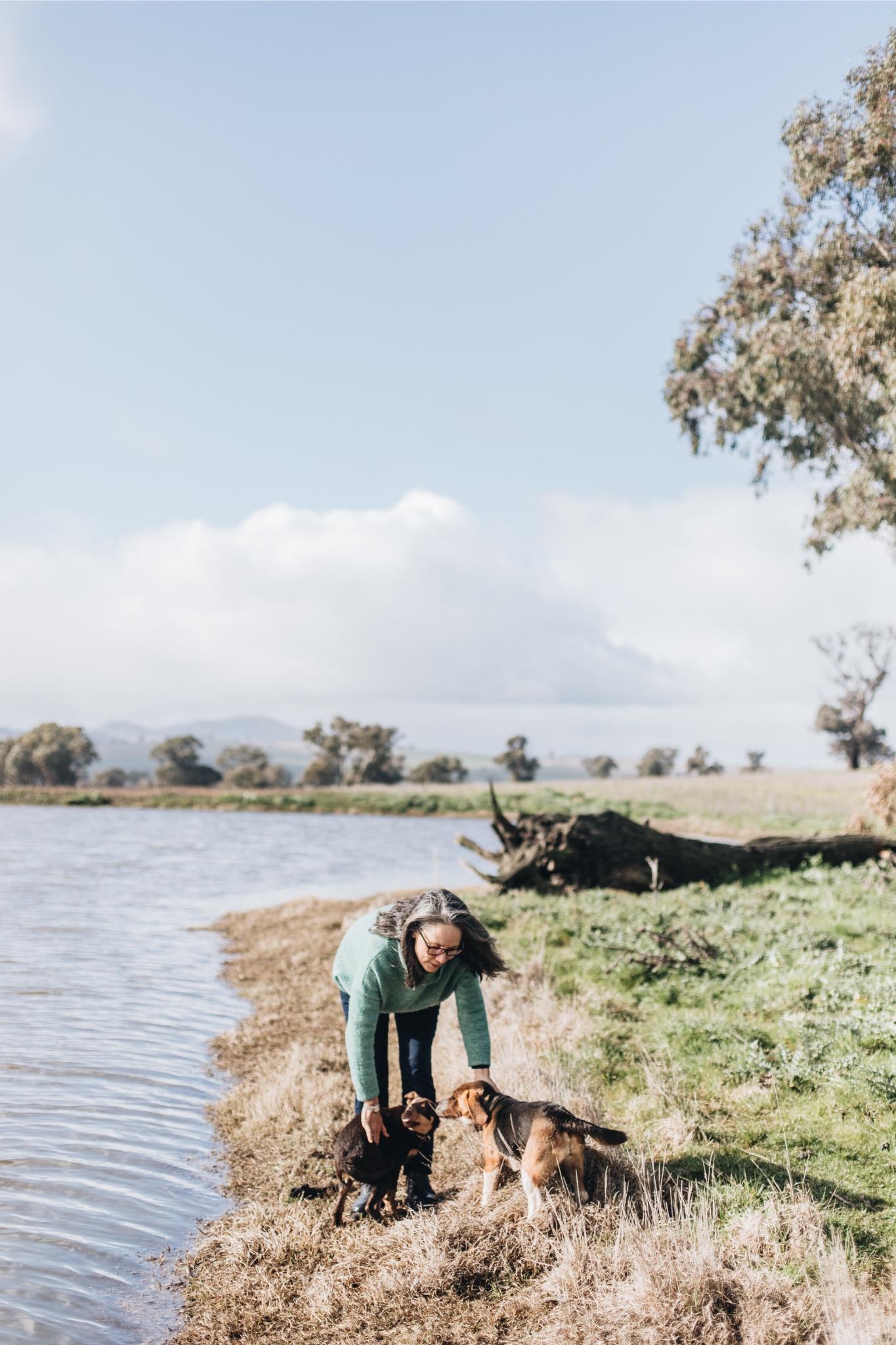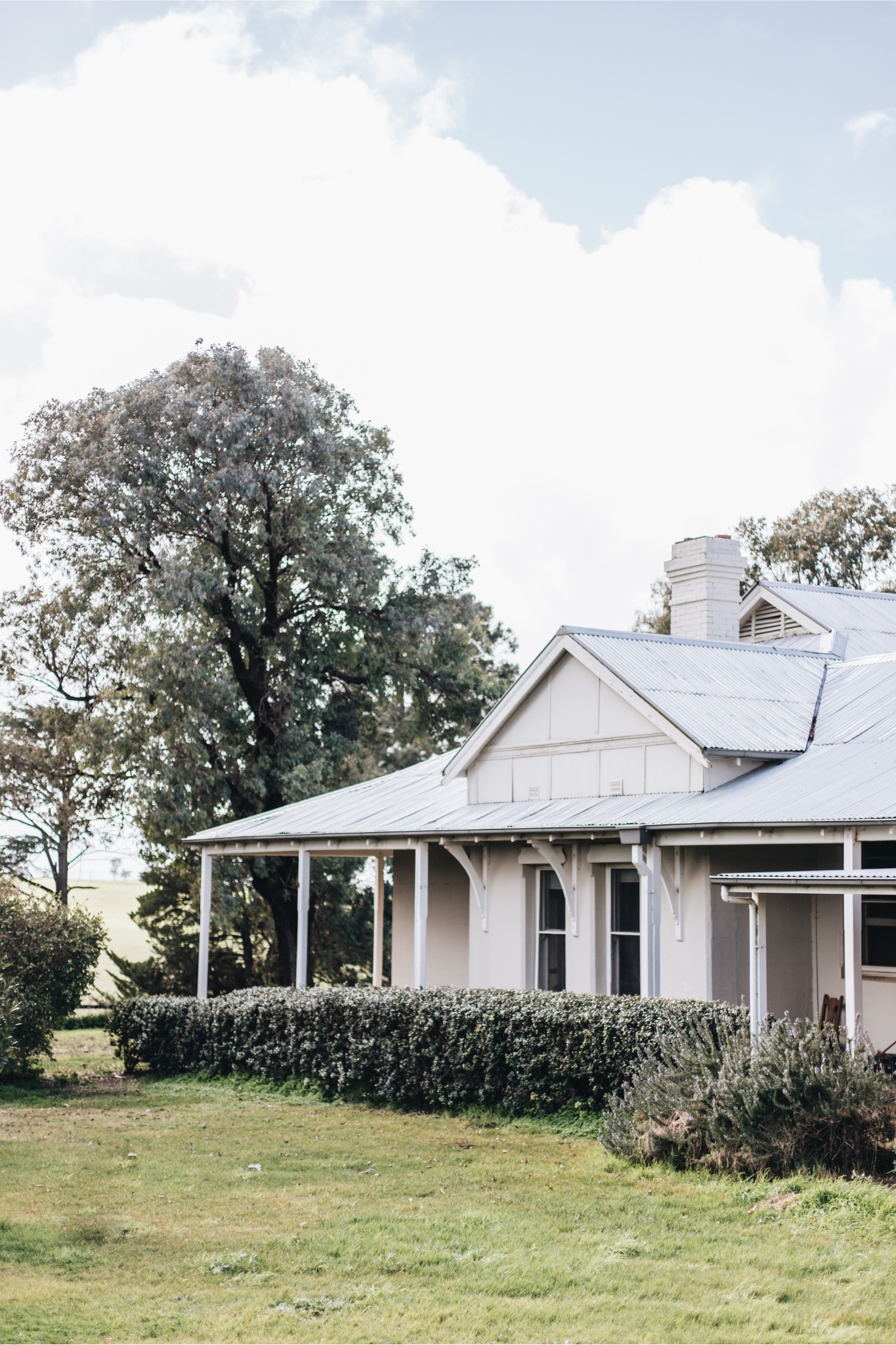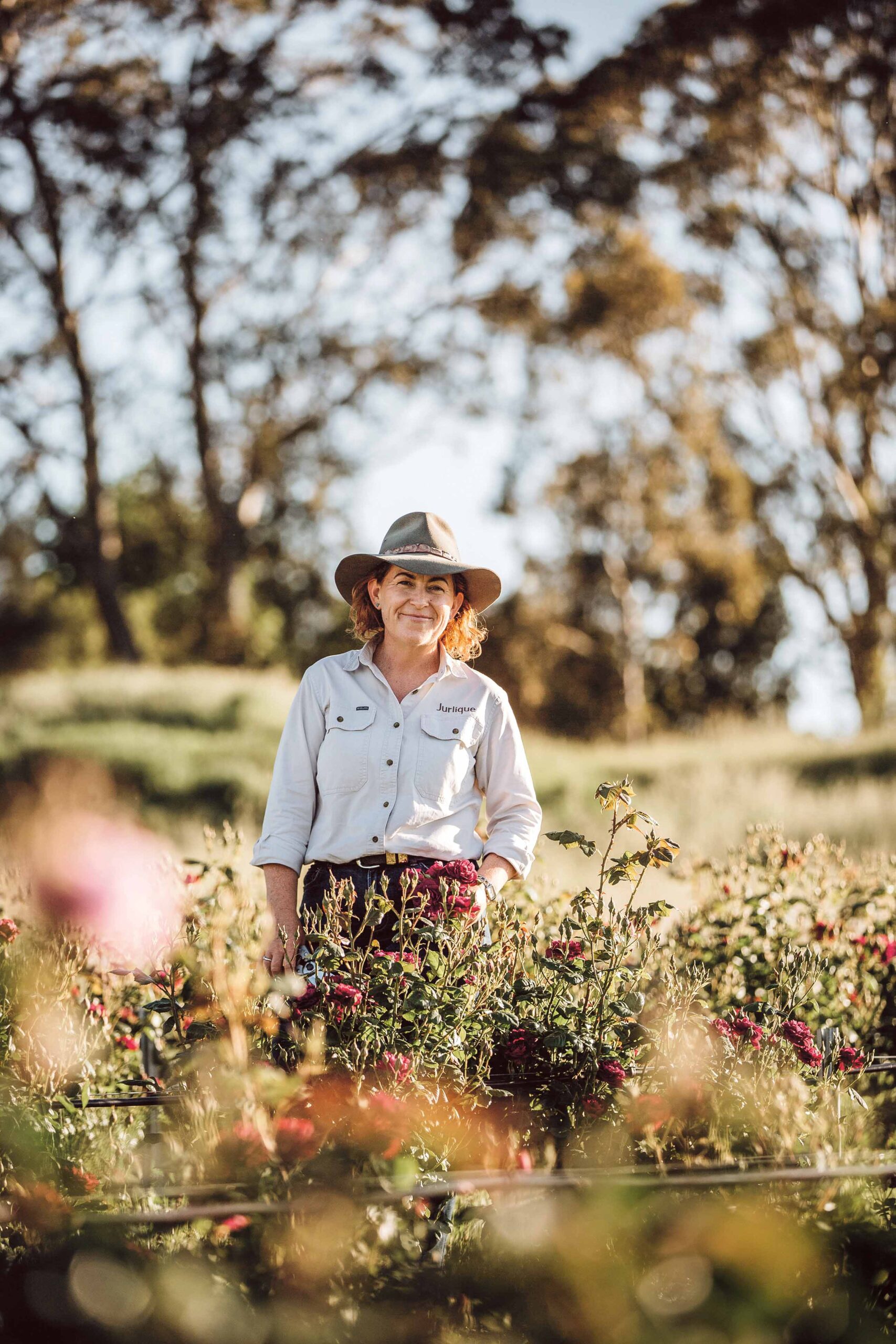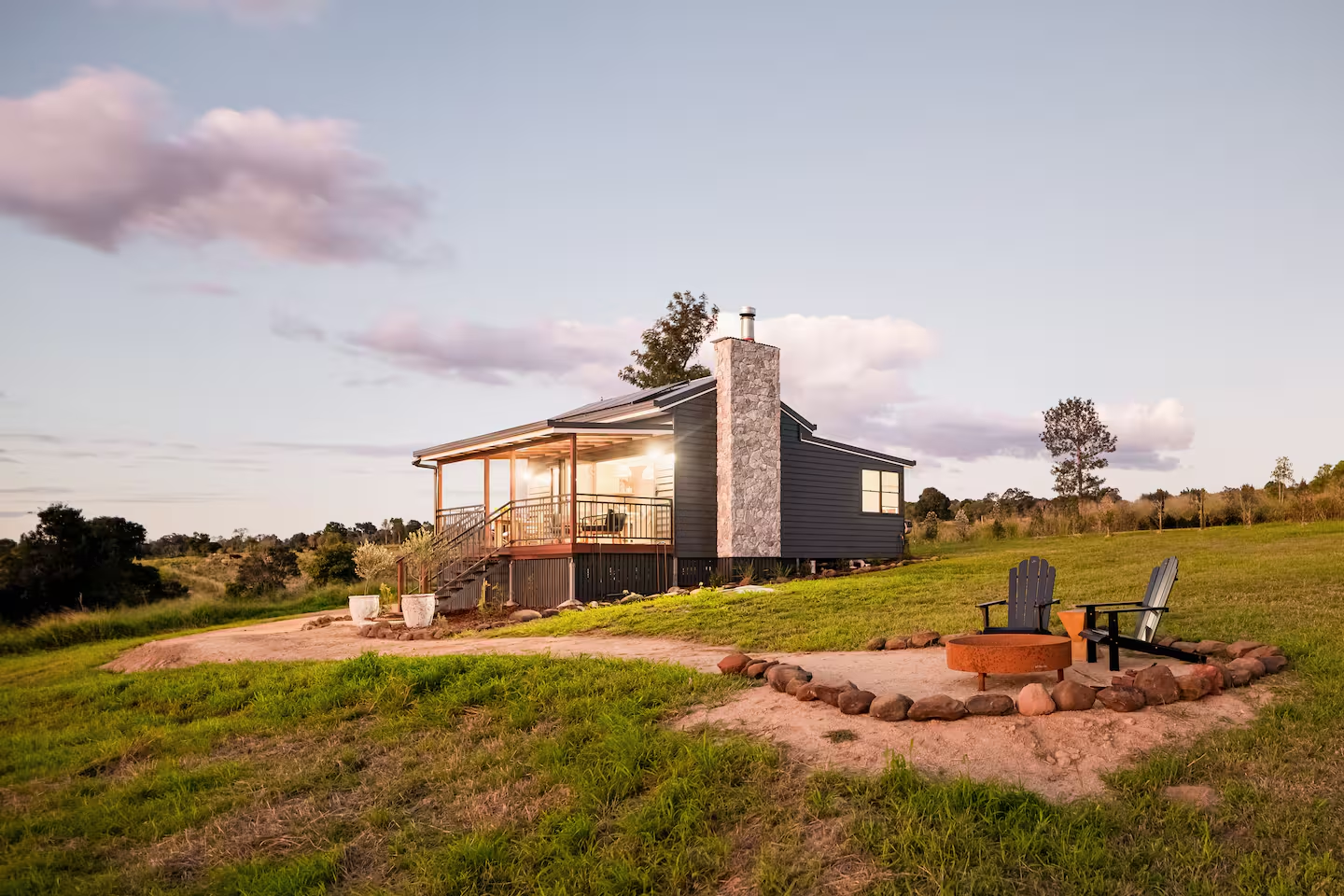When journalist Gabrielle Chan married a farmer, she moved to the country. She now reports on issues that are important to her fellow farmers and rural dwellers.
PHOTOGRAPHY ABBIE MELLE
Sign up to our mailing list for the best stories delivered to your inbox.
She explores the intricate relationship between producers and consumers in her book, Why You Should Give a F*ck About Farming.
WORDS GABRIELLE CHAN PHOTOGRAPHY ABBIE MELLE
I noticed Emma Germano when she was doing her Nuffield Scholarship in 2014. Emma travelled the world to look at export opportunities for Australian fruit and vegetable growers, after she got frustrated with watching her father take any price for their cauliflowers. She discovered the issues for Australian farmers — succession planning, water security, urban encroachment, agripolitics and world food markets — were common to many other countries.
Emma’s family has farmed in Mirboo North in Victoria’s Gippsland region for three generations. Her grandfather came from Italy with nothing and after her father and his brother split the farm, her dad took it on, growing vegetables and raising livestock. Emma’s parents instilled in her a particularly passionate view about the landscape and animal welfare. “Every tree on the farm is Dad’s favourite tree,” she says.
She went off and did her own thing for a while, learned how to run a restaurant business and look after staff. But that thing for the land was still buried deep within her.
Like many younger farmers, when she came back, she wanted everything in spreadsheets. She wanted to know the return on every dollar. “All the farmers are making bad decisions,” she told her parents. She lectured her dad, telling him as only a young adult can tell a parent, “You’re too emotionally attached to the place.” When they very nearly did lose the farm, Emma stood in the drizzle and the wind at the top of a hill on the day of the auction, where she could see the whole damn place. She had pre-approval from the bank to bid. She either bought that piece of land or let it go. For the same price, she could buy many other properties or businesses. Was that the very best farm, or business, or very best opportunity available?
“It had nothing to do with it,” Emma explained. “This is our farm. My dad grew the trees. I want to keep it in the family because I can. Nothing rational about it. If they weren’t emotionally connected, there would be no farming in Australia.”
Actually, though, the wheel is swinging around again to mega-farming, like the squatter blocks of old. Now it is corporate farming. Emma argues that a problem with farm advocacy, at a public level and with government, is that it often acts as if all farmers are corporate farmers. (Since our interview, she has become president of the Victorian Farmers Federation.)
“We do it in the setting that everyone is going to have a $50 million turnover, everyone is consolidating and taking over the other farms, everyone is in ag tech, and it’s simply not true. It’s not a true reflection of who the farmers are in Australia.”
Nevertheless, she brought all the textbook business ideas to the farm. She set about trying to remove risk. While she swore she would never grow cauliflowers like her dad, she struck a deal with a wholesaler to grow them on contract. The wholesaler pushed her to grow them all year round to make use of the land.
“So I sent her a picture after 80 millimetres of rain and the washed topsoil. Because it’s her crop; there’s no risk to me. But that’s the other thing when you’re a farmer — you care about it in any case. She said, ‘Are we harvesting today?’ I said, ‘Of course not, we can’t get onto the paddock.’ And she said, ‘Well, when will we be able to get onto the paddock?’ And I heard my father’s voice: ‘When it’s dry.’ I know it’s a dick of an answer, but it’s also the answer.”
The knowledge of how land reacts under many different circumstances started to mess with her head. The management of land is a dance. Sometimes you lead and sometimes the land leads. This is the daily challenge facing farmers. The way they respond to those challenges may be innate, the stuff of personal attitude, cultural history or inherent temperament.
Emma’s great frustration is that public debate on agriculture goes around in circles. Indeed, it has become so narrow that people fear talking about trigger words. In both farming and non-farming audiences, trigger words include ‘greenies’, ‘glyphosate’, ‘irrigate’ or even ‘regenerative farming’.
She wonders how we cut through public life without getting lambasted. Not so long ago, she accepted an invitation to speak about agriculture at a metropolitan Greens branch. She worried it might be a set-up, but she went along anyway, and she says the members were very generous and gracious. She asked what they wanted to know about. It was this: why don’t farmers vote for the Greens, given they have so much in common?
She tried to explain that she was on board with the “let’s look after the Earth” thing, but that if farmers voted for the Greens, “We would be out of business.”
She was asked about no-till farming, a common way for farmers to reduce their impact and soil loss by not ploughing land: most conventional Australian broadacre farmers have put the plough away to stem the loss of topsoil and retain moisture. The trade-off is that paddocks are sprayed with the herbicide Roundup. That means the seed can be “direct drilled” into the paddock, stopping the loss of carbon dioxide. This is called no-till farming. Producing the same yield for crops like wheat, legumes, barley and oilseeds without using some herbicide is currently not possible, though increasing numbers of farmers are producing crops without them. Returning to the plough is also not an option if we want to retain topsoil. Emma used no-till farming as an example of the disconnection between the reality of farming and the public debate. If glyphosate is banned, many farmers may go back to the plough, or use a worse chemical that nobody has heard of, and we are no further ahead. Alternative farming methods and technology are developing, but they mean less yield. That means farmers will need to find income from other sources, which will require trade-offs from both farmers, eaters and governments.


“Everything we do, everything we eat, how we live is one big opportunity–cost equation when it comes to nature.”
Emma argues that metropolitan people want to change the way farmers manage land without curtailing their own high-consumption lifestyles. There were a couple of Golden Retrievers at the Greens meeting, living cosseted lives, contributing to carbon emissions. A study by UCLA geography
professor Gregory Okin found that 163 million US dogs and cats were responsible for 25 to 30 per cent of the environmental impact of meat consumption in the US. If those pets lived in a country of their own, their fluffy nation would rank fifth in global meat consumption, Okin calculated, behind Russia, Brazil, the USA and China.
“These two Golden Retrievers, with the lights on and heater running for them… you want to tell me what to do on my farm while your Labs are nice and warm? This is what you don’t get about the trade-offs.”
Emma represents a younger generation of farmers who are all too aware of the need to connect farming culture with the eater. She has watched farmers increase their debt levels to fund their own growth while forgetting to connect with the person who will buy their product.
“Does the average person down the street know how much Australian agriculture contributes to Australia? No! They don’t care. It’s not their problem. I think it’s a missed opportunity that everyone seems scared to connect with the community and connect with the public and really tell the story. “Don’t tell me the dairy story unless you are going to admit to the bobby calf bins, and tell me you are going to do something about [them], because that’s what you’re going to get caught on every single time.”
Bobby calves are the by-product of the milk industry. They are mostly male calves not required for milk production, which are sold on quickly or raised for beef. While there are strict industry guidelines on how the calves are treated, there have been examples of poor treatment on certain farms and the issue remains contentious. Death is as much a part of animal-rearing as life. If you eat a chop, you must accept that. If you eat a lentil burger — if you’re living in city and buying food — you have an impact on nature. Everything we do, everything we eat, how we live is one big opportunity–cost equation when it comes to nature. You can make value judgements and set your priorities, but you can’t discount your own role in the natural world. Emma’s concern is that people who have become very prescriptive about, for example, not eating animals, have removed themselves from the food cycle and the ecosystem to become “omniscient, all-knowing god-like creatures who say, ‘This is pain, this is not pain; that’s how you should live and this is not how you should live.’”
The Australian writer Tim Winton wrote in his memoir Island Home, “For someone brought up with a modernist outlook, it’s hard to swallow the idea that we belong to nature.” I could not swallow that idea for a long time. Like a lot of modern, relatively wealthy humans, I was confused and unsure of the natural world when I moved to a farm. It is hard to accept we do belong to the Earth. The changes we make to landscape result from our needs and wants. Some are urgent, such as the requirement to eat. Some are not urgent, such as the desire to fly at great CO2 expense to some interesting location. The binary either/or debate that says we either have pristine wilderness or we have slash-and-burn farming is crap. Even a small population will have an impact. We have to balance that impact and create a bridge between the people who manage the broader landscape and the populace who also benefit from their produce.
This is the great melding of eaters, farming and environment. There is a growing alliance at the farming end and the food end, which acknowledges that agriculture and environment can only survive by coming together. The next generation of farmers and eaters increasingly recognise this. When we eat, we digest not only the food but the system that grew the food. Farming systems are influenced by eaters’ desires.
This is an edited extract from Why You Should Give a F*ck about Farming by Gabrielle Chan (Vintage Australia, $34.99).
To hear more extraordinary stories about women living in rural and regional Australia, listen to our podcast Life on the Land on Apple podcasts, Spotify, and all major podcast platforms.

The Kalkadoon women capture the colours of Queensland’s Gulf Country as co-owners of Cungelella Art.

Raised on a dairy farm near Hahndorf, SA, farm manager Cherie Hutchinson has a deep love for the land she works on.

If you like the idea of a private plunge pool, mountain views and a glass of local verdelho, it’s time to start planning your Firebreak Farm escape.